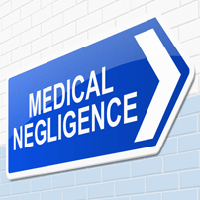Artificial Intelligence Changes How Patients Receive Medical Care
November 6, 2018 The next time you go to a doctor’s appointment, do not be surprised if your initial consultation is not with a doctor or nurse. Instead, a voice from a new artificial intelligence (AI) application will ask you a series of questions about how you are feeling, if you are in pain, how long you have been feeling this way, and other basic questions. The application is designed to streamline the process so that physicians do not spend an inordinate amount of time on paperwork, and you do not have to wait hours or days for medical advice. The question is whether this new technology is as safe and effective as being able to interact with a healthcare professional.
The next time you go to a doctor’s appointment, do not be surprised if your initial consultation is not with a doctor or nurse. Instead, a voice from a new artificial intelligence (AI) application will ask you a series of questions about how you are feeling, if you are in pain, how long you have been feeling this way, and other basic questions. The application is designed to streamline the process so that physicians do not spend an inordinate amount of time on paperwork, and you do not have to wait hours or days for medical advice. The question is whether this new technology is as safe and effective as being able to interact with a healthcare professional.
The goal of this new technology is to simplify the process of seeking medical advice. The application guides a patient through a clinical-grade triage process, which will determine whether your symptoms warrant urgent attention or bed rest and aspirin. If the AI is unable to pinpoint a medical condition, it will always recommend that the patient seek a second opinion by a human medical professional. Ultimately, the application becomes the first line of therapy, and the doctor becomes your last resort.
Of the 40,000 people who have started using one of these applications, between January and October 2017, 40 percent of people were given self-treatment options rather than being told to see a doctor, which is significantly more than the number of patients who spoke to a human operator. The application helps free up time for the doctors to focus on medical care rather than determine if the patient needs to be treated by a doctor. In addition, it can help patients manage their own healthcare.
Risks of Replacing Physicians with AI
Many health practitioners in the medical field believe that, as promising as AI technology is, a computer cannot replace a trained medical professional. Some even suggest that the companies who have created the technology are more interested in the financial gains than they are of patients’ safety. Others worry that the AI technology is overselling the capabilities of the technology and misleading doctors and the public. There have also been accusations that certain applications tend to cherry-pick potential patients who are younger and are likely to have less complex and less expensive healthcare conditions.
Ultimately, quality care is about more than diagnosing an illness or prescribing a medication. When a doctor has established a relationship with a patient, he or she is better able to provide more personalized care. For example, a doctor who has been treating a patient will be better able to anticipate how the patient will handle a certain type of treatment, like chemotherapy, and whether the patient will have the support needed to get through it. Computer software cannot replace that.
Baltimore Medical Malpractice Lawyers at LeViness, Tolzman & Hamilton Represent Victims of Medical Negligence
If you or a loved one became injured or sick after using a healthcare application for medical advice, contact the Baltimore medical malpractice lawyers at LeViness, Tolzman & Hamilton at your earliest convenience. This technology is still very new and is not capable of replacing skilled healthcare providers. We will determine exactly who is responsible for the medical mistake that caused your injuries and seek the maximum financial compensation you deserve. To schedule a free consultation, call us today at 800-547-4LAW (4529) or contact us online.
Our offices are located in Baltimore, Columbia, Glen Burnie, and Towson, allowing us to represent medical malpractice victims in Maryland, including those in Anne Arundel County, Baltimore County, Carroll County, Harford County, Howard County, Montgomery County, Maryland’s Western Counties, Prince George’s County, Queen Anne’s County, Southern Maryland, and the Eastern Shore, as well as the communities of Catonsville, Essex, Halethorpe, Middle River, Rosedale, Gwynn Oak, Brooklandville, Dundalk, Pikesville, Nottingham, Windsor Mill, Lutherville, Timonium, Sparrows Point, Ridgewood, and Elkridge.






